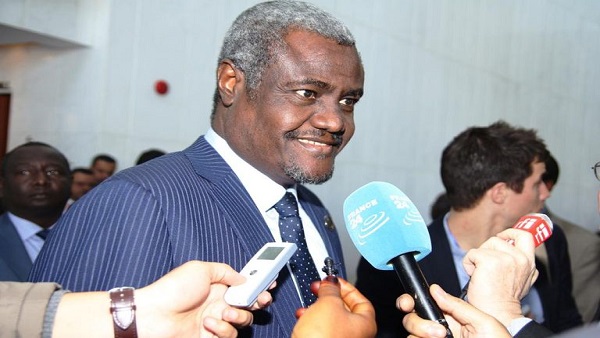The African Union’s new chair Moussa Faki Mahamat on Wednesday questioned US commitment to fighting terrorism on the continent after it blocked efforts to get UN funding for an anti-jihadist force in the Sahel.
“This is a specific case of a certain number of African states taking the initiative to create a dedicated force to fight terrorism. So, we don’t understand how the United States could hold back or not engage in the fight against terrorism,” Faki said in an interview with AFP.
Faki’s January election as chairperson of the AU commission came days after the inauguration of US President Donald Trump, who has proposed slashing US funding for aid projects and multilateral institutions like the UN.
The former Chadian foreign minister made peace and security his top priority and claimed an early victory when the UN Security Council last month welcomed the deployment of a five-nation African military force to fight jihadists in West Africa’s Sahel region.
Washington has argued that UN authorisation was not necessary because the troops will be operating in the territories of Burkina Faso, Chad, Mali, Mauritania and Niger, the countries that make up the force.
However the real issue is seen to be willingness to commit UN funds to the mission and the question of financing still hangs heavily over the so-called G5 force, which will be headquartered in Mali.
Faced with the possibility that the Trump administration’s budget proposal under debate in the US congress could slash funding to African aid projects or institutions like the AU, Faki urged Washington not to abandon the continent.
“We hope that the new administration will be in step with the current challenges of the world,” Faki said. “In any case, it does not seem opportune for the United States to disengage itself. These are fundamental questions which determine my faith for peace and stability in the world.”
Last month the US pushed through a $600m cut in the UN’s budget for peacekeeping operations that will force the drawdown of a long-running peacekeeping mission in Sudan’s troubled Darfur region.
The US is one of the foreign donors that pay for the bulk of the AU’s budget and is a key partner of the body’s AMISOM peacekeeping mission in Somalia.
But the African bloc has already found itself at odds with the Trump administration, particularly on the issue of climate change.
The AU spoke out against Trump’s June announcement that the US would pull out of the Paris climate deal, with deputy AU commission chairperson Thomas Kwesi Quartey calling on Washington to return.
AFP



